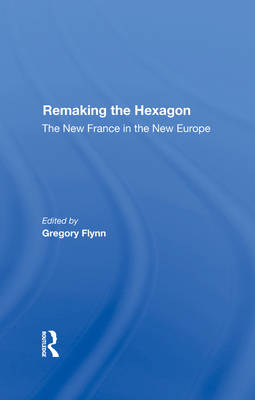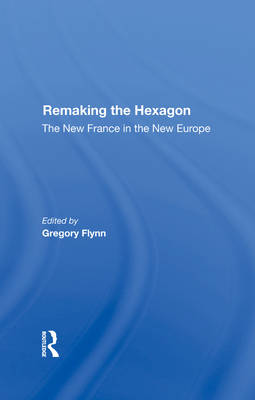
- Retrait gratuit dans votre magasin Club
- 7.000.000 titres dans notre catalogue
- Payer en toute sécurité
- Toujours un magasin près de chez vous
- Retrait gratuit dans votre magasin Club
- 7.000.000 titres dans notre catalogue
- Payer en toute sécurité
- Toujours un magasin près de chez vous
Remaking the Hexagon
The New France in the New Europe
Gregory Flynn, Yves Meny
Livre relié | Anglais
182,45 €
+ 364 points
Format
Description
In this volume, distinguished French and U.S. historians, economists, and political scientists explore the dimensions of France's current crisis of identity. Although every European nation has been adjusting to the dramatic transformations on the continent since the end of the Cold War, France's struggle to adapt has been particularly difficult. Responding to a mix of external and internal pressures, the nation is now questioning many basic assumptions about how France should be governed, what the objectives of national policies should be, and ultimately what it means to be French. Rather than focusing explicitly on the problem of identity, the contributors offer differing perspectives on the issues at the heart of the country's debate about its future. They begin by examining how France's historical legacy has influenced the way the nation confronts contemporary problems, giving special attention to the manner in which past traumatic experiences, socioeconomic and cultural traditions, and the belief in French exceptionalism have shaped current political thinking. They then consider how favoring a more open approach to trade and building a strong franc have changed the culture of economic policy and created dilemmas for the rule of the state as a guarantor of welfare. They go on to explore changes in elite structures, the evolution of the party system, and the spillover of new political conditions that are driving France's efforts to establish a strong national identity in the area of trade. Finally, the contributors examine the central influence of the changing international framework on France's self-definition, on its security policies, its relationship to the European Union, and its basic perceptions of the state and sovereignty. They also consider how the answers to these questions are affecting France's relationships with the outside world and the overriding policy dilemmas faced by all the European nations.
Spécifications
Parties prenantes
- Auteur(s) :
- Editeur:
Contenu
- Nombre de pages :
- 277
- Langue:
- Anglais
Caractéristiques
- EAN:
- 9780367285616
- Date de parution :
- 13-09-19
- Format:
- Livre relié
- Format numérique:
- Genaaid
- Dimensions :
- 150 mm x 234 mm
- Poids :
- 521 g

Les avis
Nous publions uniquement les avis qui respectent les conditions requises. Consultez nos conditions pour les avis.






